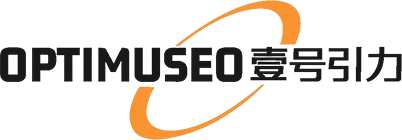Keywords are the foundation of search engine optimization (SEO) and play a crucial role in determining the visibility and ranking of a website on search engine results pages (SERPs). When users enter a query into a search engine, the search algorithm scans through millions of web pages to find the most relevant results. Keywords are the words and phrases that users type into the search bar, and they help search engines understand the content and purpose of a website. By strategically incorporating relevant keywords into website content, meta tags, and descriptions, businesses can improve their chances of appearing at the top of search results, driving organic traffic to their site.
In addition to improving search engine rankings, keywords also help businesses connect with their target audience. By understanding the specific words and phrases that potential customers use when searching for products or services, businesses can tailor their content to meet their needs and provide valuable information. This not only helps improve user experience but also increases the likelihood of converting visitors into customers. Therefore, understanding the importance of keywords in SEO is essential for businesses looking to enhance their online presence and attract more organic traffic to their website.
Conducting Keyword Research: Tips and Tricks
Conducting thorough keyword research is the first step in developing an effective SEO strategy. By identifying the most relevant and high-performing keywords for their industry, businesses can optimize their website content to attract targeted traffic and improve their search engine rankings. There are several tips and tricks that can help businesses conduct keyword research effectively. Firstly, it’s important to consider the relevance and search volume of potential keywords. Using tools like Google Keyword Planner, SEMrush, or Ahrefs can help businesses identify popular keywords related to their industry and target audience.
Furthermore, businesses should also consider the competition for specific keywords. High competition keywords may be more difficult to rank for, so it’s important to find a balance between relevance and competition when selecting keywords. Long-tail keywords, which are longer and more specific phrases, can also be valuable for targeting niche audiences and improving conversion rates. By conducting thorough keyword research and identifying the most relevant and high-performing keywords for their industry, businesses can develop a solid foundation for their SEO strategy and improve their chances of success.
Incorporating Keywords into Your Website Content
Once businesses have identified relevant keywords through thorough research, the next step is to incorporate them into their website content effectively. This includes optimizing landing pages, blog posts, product descriptions, and other on-page content with targeted keywords. However, it’s important to use keywords naturally and avoid keyword stuffing, which can negatively impact user experience and lead to penalties from search engines. Instead, businesses should focus on creating high-quality, valuable content that incorporates keywords in a way that feels organic and seamless.
In addition to on-page content, businesses should also optimize other elements of their website, such as image alt text, headings, and internal links, with relevant keywords. This helps search engines understand the context and relevance of the content on each page, improving the overall SEO performance of the website. By incorporating keywords into website content effectively, businesses can improve their chances of ranking higher in search results and attracting targeted organic traffic to their site.
Optimizing Meta Tags and Descriptions with Keywords
In addition to on-page content, meta tags and descriptions play a crucial role in SEO and should be optimized with relevant keywords. Meta tags are snippets of text that provide information about a web page’s content to search engines and website visitors. This includes the title tag, which appears as the clickable headline in search results, and the meta description, which provides a brief summary of the page’s content. By including targeted keywords in meta tags and descriptions, businesses can improve their chances of ranking higher in search results and attracting more clicks from potential visitors.
When optimizing meta tags and descriptions with keywords, it’s important to keep them concise, relevant, and compelling. The title tag should accurately reflect the content of the page while incorporating primary keywords, while the meta description should provide a clear and enticing summary that encourages users to click through to the website. By optimizing meta tags and descriptions with relevant keywords, businesses can improve their visibility in search results and increase the likelihood of attracting targeted organic traffic to their site.
Utilizing Long-Tail Keywords for Better Ranking
While short-tail keywords are important for targeting broad search queries, long-tail keywords can be valuable for reaching niche audiences and improving conversion rates. Long-tail keywords are longer and more specific phrases that are less competitive but often have higher conversion potential. By targeting long-tail keywords related to specific products, services, or topics within their industry, businesses can attract highly targeted traffic and improve their chances of converting visitors into customers.
Incorporating long-tail keywords into website content, blog posts, product descriptions, and other on-page elements can help businesses reach niche audiences and improve their overall SEO performance. Additionally, long-tail keywords can be valuable for voice search optimization, as they often reflect natural language queries used by voice search users. By utilizing long-tail keywords effectively, businesses can improve their ranking in search results and attract more targeted organic traffic to their website.
Monitoring and Adjusting Keyword Strategy for Maximum Impact
SEO is an ongoing process, and it’s important for businesses to monitor and adjust their keyword strategy regularly for maximum impact. This includes tracking keyword rankings, analyzing website traffic and user behavior, and staying updated on industry trends and changes in search algorithms. By monitoring the performance of targeted keywords and adjusting their strategy accordingly, businesses can ensure that they are consistently optimizing their website for maximum visibility and attracting targeted organic traffic.
In addition to monitoring keyword performance, businesses should also stay updated on changes in search engine algorithms and best practices for SEO. This includes staying informed about new keyword trends, updates to search engine ranking factors, and changes in user behavior that may impact keyword strategy. By staying proactive and adaptable in their approach to keyword strategy, businesses can maximize the impact of their SEO efforts and stay ahead of the competition.
Avoiding Keyword Stuffing and Black Hat SEO Practices
While incorporating keywords into website content is important for SEO, it’s crucial to avoid keyword stuffing and other black hat SEO practices that can harm a website’s visibility and reputation. Keyword stuffing refers to the practice of overloading web pages with excessive keywords in an attempt to manipulate search engine rankings. This not only negatively impacts user experience but can also lead to penalties from search engines that can significantly harm a website’s visibility.
In addition to keyword stuffing, businesses should also avoid other black hat SEO practices such as cloaking, link schemes, and duplicate content. These practices are deceptive and violate search engine guidelines, putting websites at risk of being penalized or banned from search results altogether. Instead, businesses should focus on creating high-quality, valuable content that incorporates keywords naturally and provides a positive user experience. By avoiding keyword stuffing and black hat SEO practices, businesses can maintain a strong online presence and attract targeted organic traffic to their website.
In conclusion, understanding the importance of keywords in SEO is essential for businesses looking to improve their online visibility and attract more organic traffic to their website. By conducting thorough keyword research, incorporating keywords into website content effectively, optimizing meta tags and descriptions with relevant keywords, utilizing long-tail keywords for better ranking, monitoring and adjusting keyword strategy for maximum impact, and avoiding keyword stuffing and black hat SEO practices, businesses can develop a solid foundation for their SEO strategy and improve their chances of success in the competitive online landscape. With a strategic approach to keyword optimization, businesses can enhance their online presence, connect with their target audience, and drive meaningful results for their bottom line.


